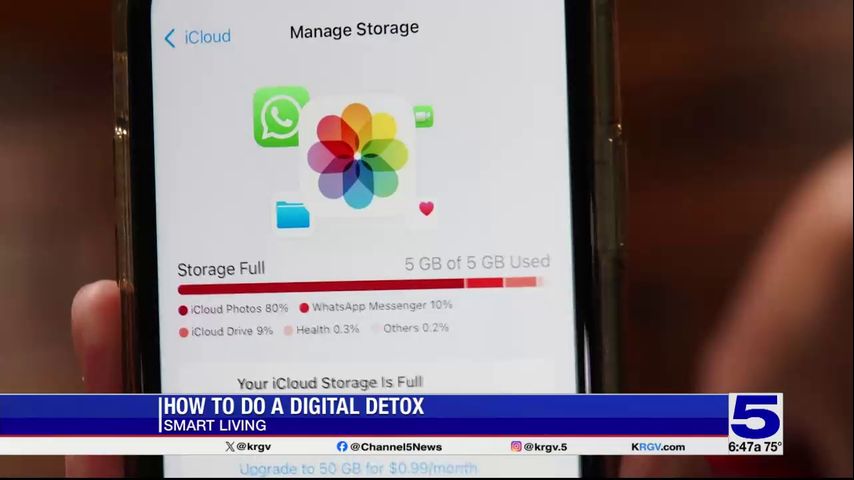Smart Living: How to do a digital detox
It may seem innocent to take several photos of your family until you get that perfect shot, so your phone may be full of pictures.
Thousands of pictures, tens of thousands of emails, annoying notifications that you've run out of space, sound familiar?
"After a certain point, do you really need an email from 10 years ago or 20 years ago?" Cutting Edge Network Technologies, John Degen said.
All those digital files take up space on your devices, sometimes causing sluggish speeds.
"If you don't have a methodology of archiving them or doing something with them, they just clutter up your phone," Degen said.
And your mental state.
In a survey of a thousand Americans, two out of three said they feel stress or anxiety because of the sheer volume of their digital files; and there are warning signs.
In severe cases, psychologists say digital hoarding can lead to insomnia or feeling disconnected from people in your life.
It can also zap productivity.
After all, sorting through all this can take time. If you can relate, it may be time to declutter.
"The first thing to do is come up with a plan," Degen said.
Experts suggest starting small.
Dedicate a few minutes a day to tasks like archiving emails, deleting unnecessary apps, or setting a limit to how many bookmarks and files you save.
Just because you may have seemingly unlimited cloud storage, that doesn't mean you have to use it.
For people who have a persistent fear of deleting files even if they don't have a clear plan for them, it could be a sign of a bigger problem, related to an obsessive compulsive disorder.
If you're experiencing this, experts advise speaking with a medical professional.
Another reason you may want to cut back on digital clutter? The environment.
The data centers that house our digital economy have a larger carbon footprint than the aviation industry.





